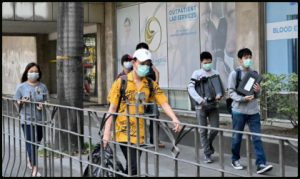The three remaining firms holding a Philippine Offshore Gaming Operator (POGO) license in the Subic Bay Freeport Zone are reportedly closing down due to the economic fallout associated with the ongoing coronavirus pandemic.
According to a Saturday report from the Philippine Daily Inquirer newspaper citing an official briefing from the Subic Bay Metropolitan Authority (SBMA), one locally-licensed iGaming operator headquartered in the former United States Navy complex has already shut up shop and is to now be followed by the zone’s remaining trio.
Considerable consequences:
Wilma Eisma, Chair for the SBMA, reportedly told the newspaper that the holders of the three POGO licenses are currently ‘in the process of winding down’ while her office is liaising with the Bureau of Immigration regarding the visas earlier issued to these companies’ foreign-born workforces. Such staff will now purportedly be required to return to their country of origin, which in the majority of cases is China, if they are unable to secure new employment in the Philippines.
Eisma reportedly declared…
“Actually, it’s saddening in a way because the POGO closures are a signal that the economy is not yet there. And I would think the economy not just in the Philippines but also worldwide because the POGO clients are not in the Philippines but outside of it.”
Pervasive plunge:
The official reportedly blamed her region’s current economic slump on the coronavirus pandemic subsequent to detailing that this recession has moreover negatively impacted non-gaming firms and forced many more to reduce the size of their workforces. But she purportedly sounded an optimistic note in revealing that her office recently approved entry for an enterprise that is to be engaged in the manufacture of facemasks.
Reportedly read a statement from Eisma…
“If we have bad news, we also have a bit of good news because there are still investments coming into the Subic Bay Freeport Zone.”
Reduced revival:
Before the emergence of the coronavirus pandemic and the newspaper reported that the Philippines was home to some 60 firms holding a POGO license. However, every one of these enterprises were purportedly temporarily shuttered from mid-March as part of a nationwide lockdown with the government having so far only allowed 29 to re-open under a stricter set of quarantine and tax rules.



